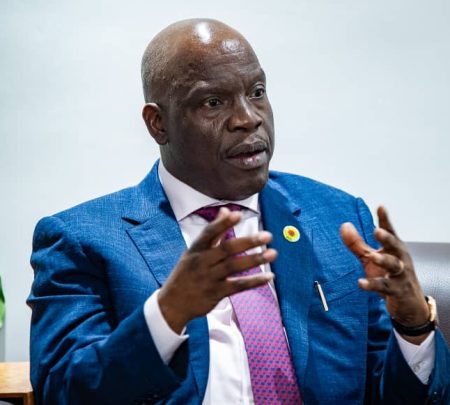Sam Ikeotuonye 18 July 2015, Sweetcrude, Lagos – The Petroleum and Natural Gas Senior Staff Association of Nigeria, PENGASSAN, says it still maintains strong objection to the privatisation of the state-owned refineries in Warri, Kaduna and Port Harcourt.
 According to the union, the existence of state-owned refineries was in keeping with the Organisation of the Petroleum Exporting Countries, OPEC’s, principle that member countries should hold good grip of the commanding height of their economy.
According to the union, the existence of state-owned refineries was in keeping with the Organisation of the Petroleum Exporting Countries, OPEC’s, principle that member countries should hold good grip of the commanding height of their economy.
“PENGASSAN maintains strong objection to the privatisation of state-owned refineries as the OPEC principle is being cautiously guided by other OPEC member countries,” the association said in a statement by National Public Relations Officer, Mr Emmanuel Ojugbana.
It also called on President Muhamadu Buhari to increase local refining capacity before embarking on any deregulation process, urging him to ensure that the focus of deregulation policy was based on local production rather than importation.
The union maintained that if local refining was not increased to meet local demand for petroleum products, especially the premium motor spirit (petrol), removing subsidy on petroleum products would bring more hardship on Nigeria.
It stated that removing subsidy while the country depended on importation of refined products would make prices of refined products to be out of the reach of the masses and would cause inflation.
PENGASSAN also said that importation of refined petroleum products was a major drain on the nation’s revenue, adding that it created jobs for the refining nations in spite of the high unemployment rate confronting Nigeria.
“Importation of refined petroleum products is also putting the Naira under undue pressure and creating social problems for the economy.
“Abrupt removal of fuel subsidy will create chaos that may ground the economy. PENGASSAN calls for well-coordinated measures with timeline to achieve self-sufficiency in local refining as a means of proffering acceptable steps to end fuel subsidy.
“This should be combined with such other measures for effective optimisation of gas, especially for domestic, industrial, electricity and automotive energy. Such will create other affordable and friendly sources for energy needs” it stated.
The union also said: “As an important stakeholder in the sector, we oppose the petroleum products importation regime, which is rent seeking and indeed a drain device that is inimical to our economic and social empowerment.
“It is affecting our self-dependence and means of job creation. Thus, we maintain our unwavering belief in local refining”.



